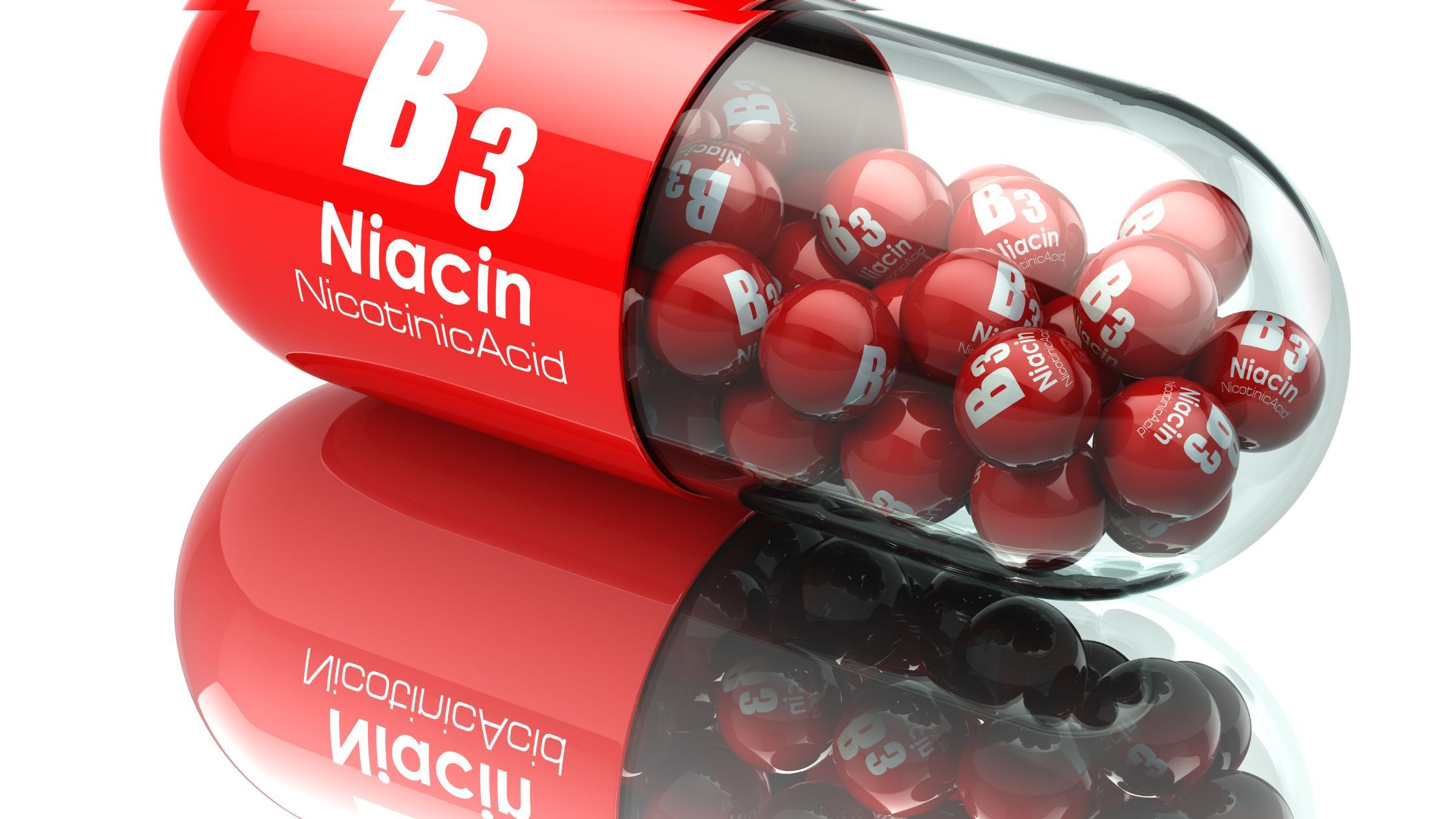Niacinamide Is Considered A Power Substance For Your Skin

Niacinamide creams and serums are currently in the highest demand in drugstores and perfumeries and always sell out the fastest. They are experiencing an absolute run among female consumers. But men also benefit from niacinamide for enlarged pores, spots and wrinkles.
Niacinamide is considered a power ingredient. From Nivea to luxury skincare brands such as Dr. Barbara Sturm, no brand today can do without it. Anyone who deals with dietary supplements is sure to have come across the substance niacin. This is vitamin B3 (the chemical name for vitamin B3 is niacin). Niacin is converted into niacinamide in the body and is therefore an important precursor of two co-enzymes of radical importance for the body’s health: NAD (nicotinamide adenine dinucleotide) and NADPH (nicotinamide adenine dinucleotide phosphate). These two co-enzymes boost the energy of cells and are involved in more than 200 vital enzymatic reactions.
It has been scientifically proven that these two co-enzymes decrease with increasing age, particularly in skin tissue. This decline is linked to cell senescence. Aged skin cells secrete less collagen: Niacinamide could help to boost production again. Ageing skin damaged by sunlight can also benefit from this.
Niacinamide in serums and creams
In skin care, the term niacinamide or nicotinamide is used. Niacinamide is a derivative of vitamin B3, which means that it has a slightly different chemical structural formula to niacin. In the cosmetic field, the water-soluble vitamin B3 derivative is increasingly being mixed into serums or creams. It is considered a remedy for many of the most common problems that can arise from stress, but also from over-care of the skin. Niacinamide is characterized by five important benefits in skin care:
- It is a “cell-communicating” ingredient that helps to strengthen the building blocks of the skin barrier – ceramides and keratin. Improving the barrier makes the skin more resistant to external influences.
- An increased ceramide level means that moisture can be stored better. This in turn improves the texture of the skin. It looks plumper and feels softer.
- As the vitamin B3 derivative regulates melanin production, hyperpigmentation and uneven skin tones can be reduced. The complexion looks healthier and less dull as niacinamide counteracts the glycation process that contributes to collagen breakdown.
- It has a kind of blurring effect: its anti-inflammatory properties not only help to reduce redness and small imperfections, it can also reduce dark circles under the eyes.
- The power in gredient can also reduce the size of pores and improve the appearance of blackheads.
Suitable for everyone
Niacinamide is a substance that every skin type can benefit from, as it has an anti-inflammatory effect and helps to control excess oil. However, it is important to find the right formula for your skin type: For oily skin that is prone to clogged or enlarged pores and/or skin discoloration, a light, watery product such as a booster with 10 percent pure niacinamide (e.g. from Paula’s Choice) is best. For dry skin, a softening moisturizer or moisturizing toner with a smaller amount of niacinamide is recommended.
To take advantage of the anti-inflammatory and antioxidant effects of niacinamide, apply it in the morning. A 2019 study found that thanks to its ability to repair damaged DNA and its powerful antioxidant properties, it is particularly effective against the pollution we are all exposed to on a daily basis.
If you struggle with pigmentation spots, you should choose a night serum with niacinamide. It has the power to soothe the skin and depigment it at the same time. This active power ingredient is also an excellent team player. It can be easily combined with other ingredients – be it vitamin C, salicylic acid or retinol. In the case of retinol, for example, niacinamide can reduce its drying effect thanks to its moisturizing properties.
Pay attention to concentration
Niacinamide is available on the cosmetics market in different concentrations. You have to find out for yourself how much your own skin can tolerate. An extremely high concentration (10 percent) can lead to skin irritation under certain circumstances, while too low a concentration has hardly any effect. At least five percent should be included to achieve good results without overstraining the skin at first. You can then gradually increase the dose. Tip: When buying a product, make sure that niacinamide is high up on the list of ingredients – between numbers three and five.
If you use several products in your skincare routine, the golden rule is to always start with the lightest formulation when applying the individual layers. This way, heavier textures can penetrate the lighter ones and be properly absorbed. Therefore, start with water-based products, followed by oil or emulsions and then the heavier creams.
Niacinamide as a dietary supplement
Taking niacinamide as a dietary supplement can promote general health and prevent deficiency symptoms. You should consult your doctor before taking such supplements. This is particularly important if you have skin diseases or allergies. According to the Federal Institute for Risk Assessment (BfR), food supplements should not contain more than 160 mg nicotinamide per daily dose. Nicotinic acid should not exceed 4 mg per daily dose.
For those who prefer nature. There are also a number of foods that contain niacinamide:
- Good sources of niacinamide are meat (poultry, beef, pork) and fish. Tuna, salmon and mackerel in particular are rich sources.
- Plant sources: Legumes such as peas, beans and lentils. Vegetables such as mushrooms, asparagus, tomatoes and avocado contain vitamin B3. The same applies to green leafy vegetables (spinach, kale and others).
- Wholemeal products such as wholemeal bread, oatmeal and brown rice
- Nuts and seeds, especially peanuts, sunflower seeds and sesame seeds.
- Milk, yogurt and cheese, as well as eggs.
- Fortified foods: Some foods, especially breakfast cereals, and drinks are often fortified with vitamin B3.

CultureAndCream Author from Munich
To travel during my profession as a beauty journalist was never enough for my. Also my six month on a world trip didn’t do it. It always attracts me to other cities, foreign countries, on roadtrips and places I don’t know yet. But I am not only interested in “culture” and “cream”, I am also fascinated by people who have stories to tell . Such unique experiences I want to share with you.




